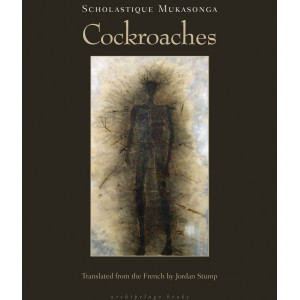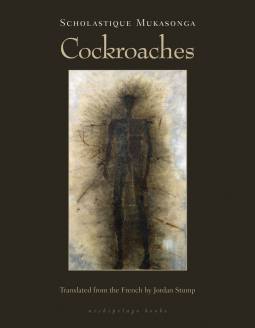Screen Wiper – Review: Cockroaches

Lisez la critique de Emma Reed sur le blog Screen Wiper à propos de mon ouvrage ‘Cockroaches‘, la traductions anglaise de ‘Inyenzi ou les cafards’ qui sera publiée par mon éditeur américain Archipelago Books et sortira le 4 octobre 2016.
Lire l’article complet sur le blog Screen Wiper
The Genocide of the Tutsi people by the ruling Hutus in the 1990s( like the war in the Balkans in the same decade) was one of the most shocking events that people of my generation remember . The News footage of children with machetes and mass graves is most vividly imprinted in my minds eye. This book immediately spoke to my interest in the period.
This is an intensely honest account of the effect the civil unrest in Rwanda had on a young girl, her family and an entire ethnic group.Translated here from the author’s original book written in French. The human story of a family history set against the backdrop of the breakdown in the system that enabled Tutsi people to become so hated and subjugated by the Hutus is rich in socio- political context, but reads like a personal account rather than a documentary piece.
It is measured , not written to elicit pity ( although it does ) at the vicious deaths of so many. No this book is more a expression of a revelation of a truth to the people of the west, whose “help” through UN intervention (or lack therein) was absolutely ineffectual and almost laughable in it’s impotency.
The reality of this simple truth is hardest to stomach and face by me as a British reader because this massacre of almost a whole Rwandan ethnic tribe was allowed to occur despite the historical build up being a gradual and yet a well defined and documented descent into anarchy and chaos.
The world watched. The world remained inactive.
This is not a victim’s tale, it is in fact more a tale of survivors guilt,as felt by the young girl whose own familial losses number in the seventies with nieces, nephews and in laws all factored in. The listing of the names in her memory in a tattered exercise book serves as bitter memorial to those lives lost so needlessly. Her guilt focused on the fact that she and her children lived, simply and wholly on the merit that their Father was French and so had ease of travel. Her anguish is not that family died for this seemed almost a foregone conclusion when the persecution of Tutsis was so continuous and blatant, but more that she lived whilst they perished.
The fact that so many of the atrocities across Rwanda were carried out by near neighbours whipped up into angry frenzies by corrupt militarised government , by young men barely older than children themselves;makes this so very hard to read about.
The book is graphic but descriptions are not lurid or deliberately gratuitous, they fit the seriousness of the subject matter. Everyday domesticity of banal tasks and violence of extremity not witnessed outside the region, are delivered with subtlety with an eye for detail.
A book I would strongly recommend to anyone with an interest in foreign affairs and a good contextual book when examining faction wars in the Middle East which at times come perilously close to similar internal political implosions. A cautionary tale for anyone who witnesses conflict on the basis of race and ethnicity in East or the West for that matter,on how pettiness can so quickly become carnage and ultimately genocide.



